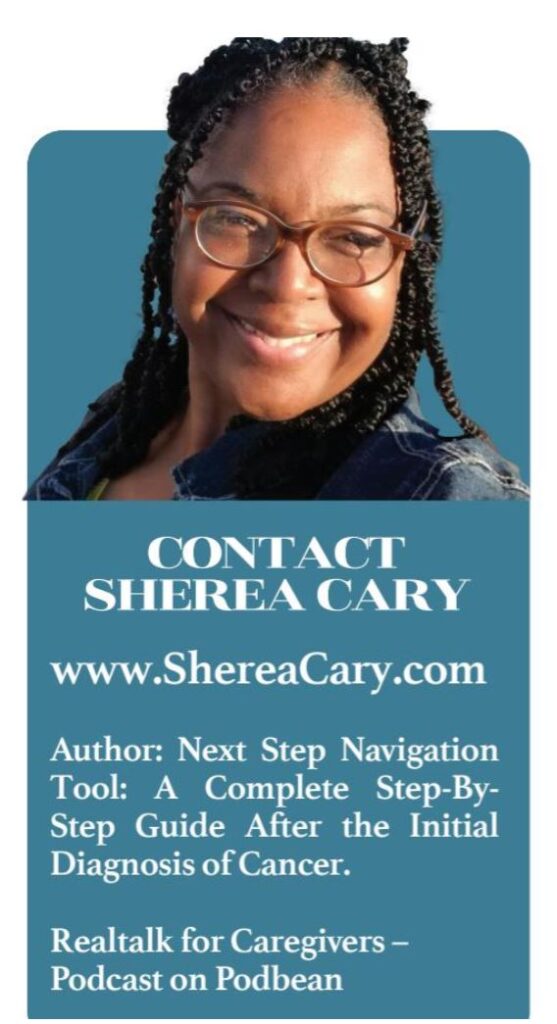National Caregivers Month: Tips for those in various roles


By: Sherea Cary
In 1997, President Bill Clinton proclaimed November to be National Family Caregivers Month to honor more than 50 million caregivers across the country. I am a caregiver. I cared for my father after his cancer diagnosis and I care for my mother, now diagnosed with dementia. Caregivers care for and support elderly parents, spouses suffering from illness, ill children or the disabled. Many caregivers have no formal medical training but aid in administering medication, providing meals, dressing, and bathing. According to the AARP 2020 Caregiving in the U.S. study, more than a third of caregivers are ages 50 to 64, about a quarter are 35 to 49, another quarter are 18 to 34, and 7 percent are 75 or older. It is highly likely you are a caregiver or support a caregiver.
Everyone will face caregiving, either as care recipient, caregiver or supporting a caregiver. Caregiving can be overwhelming so here are some tips for the care recipient, caregiver, and supporters of caregivers. Everyone.
Care Recipient
Co-operate with the caregiver, let the caregiver help. Caregivers are doing what they do out of love. In addition to love, caregivers also feel a sense of duty to the care recipient or loved one, a mother cared for her children, so children feel love and duty to care for the mother. Think of caregiving like this, caregiving is the caregiver’s opportunity to demonstrate love when caring for the care recipient. Care recipients are not a burden, do not deny caregivers the opportunity to show their love in the action of caregiving.
[SCROLL BREAK!!! Bayou Beat News can also be found in PRINT at a store near you. Click the link below to check out our E-Edition!]
Caregivers
Get organized, assemble all essential paperwork, calendar, medical and prescription records together in one place.
Build a care team. Building a care team requires people and resources, all hands-on deck, kids, college students, middle aged and retirees, there is a job for everyone. Identify exceptional skills and talent of care team members. Give care team members a choice and allow care team members a chance to help. Good care team members change the journey.
Planning is important, base the plan on information and care team members currently available. Use what is on hand and modify, as necessary. Ask for and accept help, when help arrives let the help do it, do not micromanage. Plan for backup, retention, and appreciation. If relying on family as care team members, remember people do not change because of a health crisis. Family members who are unscrupulous are the same when mom is sick, rarely does old behavior change.
Write down the needs of the care recipient? What resources are available to utilize? Remember family and friends are some of our most valuable resources, they want to help, they just need to know what to do. Everyone has a talent, include the talent when assembling help and support. Figure out what is needed to be a successful caregiver.
Caregiver Supporters
Give time, allow respite for the caregiver. Sit with care recipient or go on an outing with the care recipient. Time is a precious gift to caregivers, there is never enough of it. Stop saying “if you need anything call me,” care recipients and caregivers eat every day, bring food. A roasted chicken from Kroger and a bag of salad is a lifesaver in addition to being a meal for a couple of days. There is always a chore list, do a chore, cut the grass, pick up a few items at the grocery store or dispatch Instacart. Take something off the list of the caregiver. Taking one thing off the caregiver’s list can make a caregiver’s day.
As we roll through National Family Caregivers Month and the holiday season, pledge to implement a few of the suggestions and resources shared in this article. The suggestions are simple, they work, and anyone can do it.
Need help? Contact Sherea Cary!

